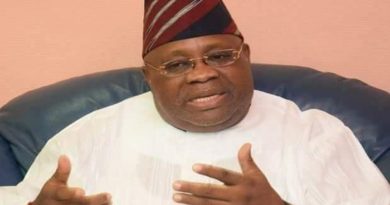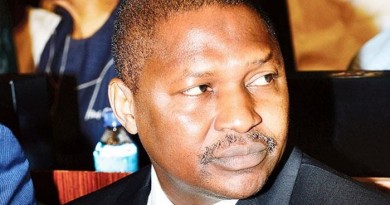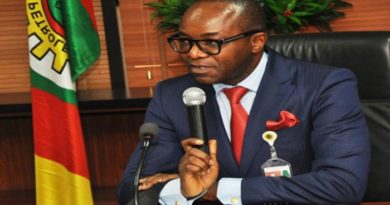FMDQ Group unveils first Green Exchange in Africa
Onadele said that the biggest risk facing the world was climate change, which made sustainable financing vital for economic sustainability.
“With climate change becoming one of the biggest risk facing the world today, and in recognition of a great need to promote economic development in Nigeria through green and sustainable finance, FMDQ Group considers it pertinent to launch the green exchange initiative.
“The first in Africa to provide an information platform dedicated to promoting transparency, good governance and the growth of green and sustainable finance in the Nigerian financial market.
“The launch of the FMDQ Green Exchange is a milestone which will contribute to not just Nigeria but Africa’s achievement in our endeavours toward achieving the global climate goals defined in the Paris Climate Agreement and in the UN’s SDGs.
“FMDQ Group recognises the imperative role it plays in the Nigerian financial market and the opportunities its business represents in its ability to promote sustainable economic growth and development.
“As such, understands that the delivery of long-term business success, value creation and prosperity, is not only hinged on financial but also environmental and social performance.
“It is in accordance with this, that the FMDQ Group, through its subsidiaries has continued to take the lead in championing green and sustainable finances in the Nigerian financial markets,” he said.
Onadele appreciated the Lagos State Government for commitment to the green and sustainable finance drive in the state and Nigeria.
He also commended the Federal Government, Access Bank Plc and North South Power Ltd the pioneer issuers of green bond in Nigeria.
The Lagos State Governor, Mr Babajide Sanwo-Olu, in his address said that green, blue and sustainable financing would help to address climate change effects.
Sanwo-Olu represented by the Special Adviser on Sustainable Development Goals (SDGs) and Investments, Mrs Solape Hammond, said that the launch was a good step in the right direction for mainstreaming financing in Nigeria and Africa.
He said the world’s first green bond was issued by the World Bank in 2008 and has continued to grow, but the Green Exchange in Luxembourg was not created until 2016.
Sanwo-Olu added that Luxembourg Stock Exchange (LuxSE) had since become the world’s leading platform for sustainable securities issuing about 50 per cent of green securities.
“Nigeria is committed to the SDGs, to achieve this and other lofty goals, funding is required in excess of what the public sector can generate.
“Public funding alone cannot suffice and private capital needs to be mobilised to reach the objectives in the Paris Climate Agreement and the UN SDGs.
“The financial sector will, therefore, play a vital role in accelerating the local markets ability to provide the required support,” he said.
According to him, FMDQ is creating and embracing the opportunities inherent in expanding green, blue and other social sustainability funding options as alternative sources of finance for projects and assets not just in Lagos State but across the Africa.
Sanwo-Olu said that Lagos generated in excess of 14 million metric tonnes of wastes annually estimated to be about 11 tonnes per day, comprising mostly of plastics, liquid and organic wastes out of which 65 per cent ends up in the biggest dump site at Olusosun, Ikeja.
The Director-General, the Debt Management Office (DMO), Ms Patience Oniha, in her goodwill message, said that the DMO had been associated with FMDQ from inception and was impressed with the progress achieved so far, in the areas of innovation and price discovery, among others.
Oniha commended FMDQ for initiatives aimed at developing the country’s capital market.
“It means we have to raise funds in our own case. Revenues will be there but we may also need to borrow to finance those projects and this means that we will be issuing securities that comply with those requirements. It means that our initial activity, the domestic green bond market, should increase.
While we have a total of N25.69 million outstanding, we still plan to be in the market sometime next year.
“Going forward, the Federal Government would be an active issuer in the FMDQ Green Exchange and what we need to do is to do a lot of sensitisation to make those projects approved and the funding arrangement,” Oniha said.




